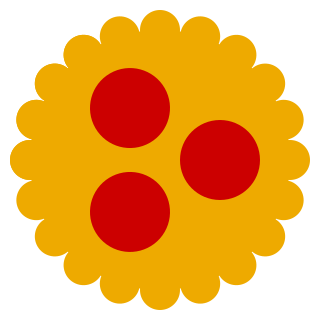
KStars is a free and open-source planetarium program built using the KDE Frameworks. It is available for Linux, BSD, macOS, and Microsoft Windows. A light version of KStars is available for Android devices. It provides an accurate graphical representation of the night sky, from any location on Earth, at any date and time. The display includes up to 100 million stars, 13,000 deep sky objects, constellations from different cultures, all 8 planets, the Sun and Moon, and thousands of comets, asteroids, satellites, and supernovae. It has features to appeal to users of all levels, from informative hypertext articles about astronomy, to robust control of telescopes and CCD cameras, and logging of observations of specific objects.

Celestia is a real-time 3D astronomy software program that was created in 2001 by Chris Laurel. The program allows users to virtually travel through the universe and explore celestial objects that have been catalogued. Celestia also doubles as a planetarium, but the user is not restricted to the Earth's surface, like in other planetarium software such as Stellarium. Celestia can display objects of various scales using OpenGL.

IntelliJ IDEA is an integrated development environment (IDE) written in Java for developing computer software written in Java, Kotlin, Groovy, and other JVM-based languages. It is developed by JetBrains and is available as an Apache 2 Licensed community edition, and in a proprietary commercial edition. Both can be used for commercial development.

NASA WorldWind is an open-source virtual globe. According to the website, "WorldWind is an open source virtual globe API. WorldWind allows developers to quickly and easily create interactive visualizations of 3D globe, map and geographical information. Organizations around the world use WorldWind to monitor weather patterns, visualize cities and terrain, track vehicle movement, analyze geospatial data and educate humanity about the Earth." It was first developed by NASA in 2003 for use on personal computers and then further developed in concert with the open source community since 2004. As of 2017, a web-based version of WorldWind is available online. An Android version is also available.
A source-code-hosting facility is a file archive and web hosting facility for source code of software, documentation, web pages, and other works, accessible either publicly or privately. They are often used by open-source software projects and other multi-developer projects to maintain revision and version history, or version control. Many repositories provide a bug tracking system, and offer release management, mailing lists, and wiki-based project documentation. Software authors generally retain their copyright when software is posted to a code hosting facilities.

QGIS is a geographic information system (GIS) software that is free and open-source. QGIS supports Windows, macOS, and Linux. It supports viewing, editing, printing, and analysis of geospatial data in a range of data formats. Its name comes from an abbreviation of its previous name, Quantum GIS.
Planetarium software is application software that allows a user to simulate the celestial sphere at any time of day, especially at night, on a computer. Such applications can be as rudimentary as displaying a star chart or sky map for a specific time and location, or as complex as rendering photorealistic views of the sky.
Assembla is a web-based version control and project management software as a service provider for enterprises. It was founded in 2005 and acquired by Idera, Inc. in 2018. It offers Git, Perforce Helix Core and Apache Subversion repository management, integrations with other collaboration tools such as Trello, Slack, GitHub and JIRA. Assembla also offers integrations with customer's managed private clouds.

Google Authenticator is a software-based authenticator by Google. It implements multi-factor authentication services using the time-based one-time password and HMAC-based one-time password, for authenticating users of software applications.

Aptoide is an online marketplace for mobile applications which runs on the Android and iOS operating systems. In Aptoide, unlike the Android-default Play Store and iOS-default App Store, there is not a unique and centralized store; instead, each user manages their own store. The software package is published by Aptoide S.A., a for-profit company incorporated in 2011, and headquartered in Lisbon, Portugal.

Google Fonts is a computer font and web font service owned by Google. This includes free and open source font families, an interactive web directory for browsing the library, and APIs for using the fonts via CSS and Android. Google Fonts is also used with Google Workspace software such as Docs, Sheets, Drawings and Slides.

F-Droid is a free and open source app store and software repository for Android, serving a similar function to the Google Play store. The main repository, hosted by the project, contains only free and open source apps. Applications can be browsed, downloaded and installed from the F-Droid website or client app without the need to register an account. "Anti-features" such as advertising, user tracking, or dependence on non-free software are flagged in app descriptions.

AOKP, short for Android Open Kang Project, is a discontinued open-source replacement distribution for smartphones and tablet computers based on the Android mobile operating system. The name is a play on the word kang and AOSP. The name was a joke, but it stuck. It was started as free and open-source software by Roman Birg based on the official releases of Android Open Source Project by Google, with added original and third-party code, features, and control.
This article contains a list with gratis satellite navigation software for a range of devices. Some of the free software mentioned here does not have detailed maps or the ability to follow streets or type in street names. However, in many cases, it is also that which makes the program free, avoid the need of an Internet connection, and make it very lightweight. Very basic programs like this may not be suitable for road navigation in cars, but serve their purpose for navigation while walking or trekking, and for use at sea. To determine the GPS coordinates of a destination, one can use sites such as GPScoordinates.eu and GPS visualizer.

Maps.me is a mobile app for Android, iOS and BlackBerry that provides offline maps using OpenStreetMap data. It was formerly known as MapsWithMe. In November 2014, it was acquired by Mail.Ru Group and became part of its My.com brand. In September 2015, the app was open sourced and a free and open-source software version was additionally made available on F-droid until the application was sold to the payment processor Daegu Limited, part of Parity.com, which changed the application user interface and content, leading original MapsWithMe founders Alexander Borsuk and Viktor Govako to release an open source ad- and tracker-free fork called 'Organic Maps' in response.
This is a timeline of GitHub, a web-based Git or version control repository and Internet hosting service.
Glass OS was a version of Google's Android operating system designed for Google Glass. "glass-omap" Tag is used in referring to the modified Android code which can be found inside Kernel Repository. Glass OS was discontinued on June 20, 2017.

Guetzli is a freely licensed JPEG encoder that Jyrki Alakuijala, Robert Obryk, and Zoltán Szabadka have developed in Google's Zürich research branch. The encoder seeks to produce significantly smaller files than prior encoders at equivalent quality, albeit at very low speed. It is named after the Swiss German diminutive expression for biscuits, in line with the names of other compression technology from Google.

Conversations is a free software, instant messaging client application software for Android. It is largely based on recognized open standards such as the Extensible Messaging and Presence Protocol (XMPP) and Transport Layer Security (TLS).












